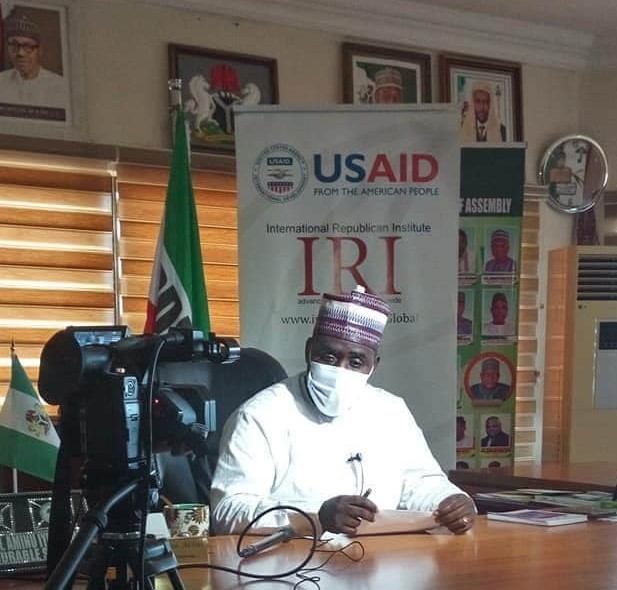Speeches Shim

On July 22, 2020 the Honorable Aminu Iya Abbas, Speaker of the Adamawa State House of Assembly, commended USAID for contributing to strengthening the legislative process in the state.
During the last legislative session, USAID, through an agreement with the Consortium of Elections and Political Process Strengthening (CEPPS), provided nonpartisan support through targeted technical assistance ranging from capacity building to citizen engagement and sponsoring public hearings on issues critical to the state. CEPPS is implemented by the International Republican Institute (IRI).
Addressing the legislature during the one-year anniversary of the Seventh Legislative Assembly in the state, Speaker Abbas said that a State Health Insurance bill and Minimum Standards for Health Facilities, both of which seek to improve health service delivery in the state, were passed by the Assembly and signed into law by Governor Ahmadu Umaru Fintiri.
Speaker Abbas said the Health insurance bill provides a legal framework for accessible and affordable healthcare services, while improving health facility standards. The bill seeks to ensure improved quality of health facilities across Adamawa and hopes their partnership with USAID through IRI can continue to strengthen legislation in the state.
The same day, the Assembly also passed a vote of confidence in IRI for their “positive contributions to legislative activities in the state,” and appealed for the extension of the program to cover the seventh Assembly tenure of four years.
To support good governance in Nigeria, USAID partners with the federal and state governments, civil society, and private sector institutions to improve the quality of the political and electoral processes, strengthen civil society advocacy, and mitigate conflict to build a safer, more peaceful society.

Comment
Make a general inquiry or suggest an improvement.